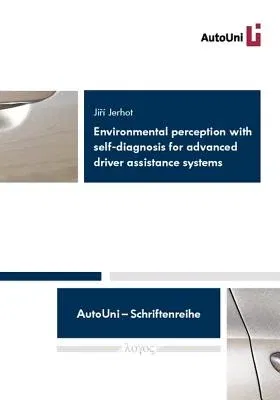Today, Advanced Driver Assistance Systems (ADAS) represent an increasing
contribution to active road safety and driving comfort. Their task is to
help the driver to avoid accidents or at least to minimize their
consequences. Depending on their objectives they can support the
driver's decisions by providing additional information (e.g. Park
Distance Control, Night Vision, Traffic Sign Recognition) or even
directly influence the driving process (e.g. Park Assist, Adaptive
Cruise Control, Lane Assist). Since the absolute number of ADAS sensors
in vehicles is permanently increasing, further development of existing
sensor data processing mechanisms is required to ensure a robust
functionality and (eventual) timely detection of system limits (e.g.
caused by sensor misalignment, bad weather conditions, pollution or
aging). Therefore, continuous knowledge of the quality of the
environmental perception is of significant importance. In this thesis,
general probabilistic approach to multi-sensorial environmental
perception of ADAS is presented. This approach incorporates sensor data
fusion with self-diagnosis capability and maneuver level intent
estimation of detected objects. Thus, the quality of environmental
perception can be continuously monitored and the intents of the traffic
participants can be predicted. The resulting probabilities are uniform
and consistent basis and reflect the reliability of the results. This
knowledge is an important prerequisite for the development of future
complex and robust Advanced Driver Assistance Systems. The developed
concepts have been used and approved in project "Integrated Lateral
Assistance", a subproject of research initiative AKTIV (abbreviation for
"Adaptive and Cooperative Technologies for the Intelligent Traffic")
supported by the German Federal Ministry of Economics and Technology.

